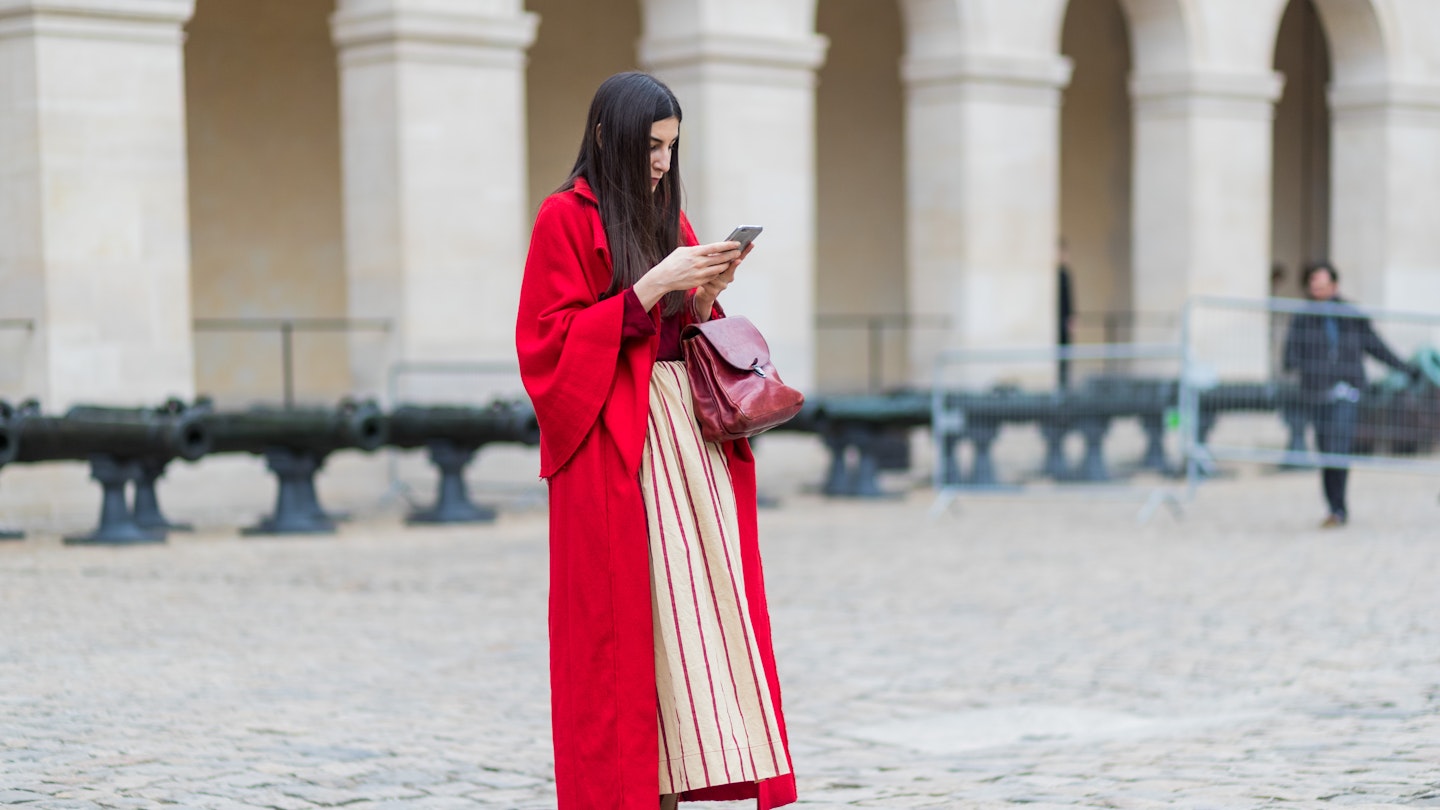‘The worst thing to do when I’m feeling insecure or a bit vulnerable is to scroll through Instagram,’ Adwoa Aboah told BBC’s Newsbeat last week. ‘You only show when life is good on social media. Everyone looks happy all the time.’
Adwoa was speaking on her experience of depression – the focus of one of ten films released last Thursday by the Duke and Duchess of Cambridge and Prince Harry as part of their mental health stigma-busting charity campaign, ‘Heads Together’. In her film, Adowa reveals how she managed to navigate her way through an extremely difficult period in her life – where severe depression drove her to drugs and even to attempt suicide.
Courageously, the British model reached out for help. She undertook treatment in rehab, she ‘talked and talked and talked’, and her life changed. ‘I’m here and I’m happy,’ she said in the film. Following her experience, she set up Gurls Talk, a platform for girls to speak openly about their feelings ‘in a safe and trusting environment’. She is now a world-famous model, working for brands such as Chanel and Dior, Erdem and Marc Jacobs. She has 165k followers on Instagram. And yet, as she reveals above, scrolling through Instagram still makes her feel, like many of us, dejected.
Why?
This is a question I think about a lot. Because don’t we all know what Instagram is really? Don’t we understand it’s just a massive boasting book – a visual CV of our most brilliant, aesthetic, photogenic moments: Look how appetising my lunch is; see how in love I am; don’t you think my kids look cute?; MY – NEW – HOUSE; my dog is the prettiest pooch EVER; look how slim I am in this outfit; check me out in that lift mirror looking surprised at myself taking a photo of… myself… And it’s the same for all users: celebrities and non-celebrities alike.
Of course, we know no one’s life is problem free – we know lunch snaps take many tries to look decent and often all that avocado makes us feel sick; we know everyone argues with loved ones; we know most of us have days where we are wholly displeased with our bodies; that we post selfies today because yesterday we could barely look in that lift mirror…
We know all these things when we post pictures. But we seem to forget it might be the same for others when they do. How do we get past this?
A radical option would be to insist that Instagram posts are flagged as ‘Fake Life News’ if the real story behind the snaps don’t make it to the captions. Or perhaps to demand disclaimers are attached to each ‘happy pic’ which state: ‘Although the person appears happy in this picture, they are not happy ALL THE TIME. Remember this when you consider how gorgeous their life appears (through an exquisite, filtered, orchestrated photograph) in comparison to yours.’
Of course, that would be ridiculous. We’d be kowtowing to the worst traits of humankind: jealousy and envy. We all have the right to present our lives in whichever way we choose. And sometimes we present it as ‘wonderful’ because it is – we genuinely are happy, we do think we look nice, we actually love our avocado lunch. And as a result, we wish to share these moments with our family, friends and followers.
There are other times, of course, when the opposite might be true, but still we make out everything’s ok – indeed, better than ok, FANTASTIC!!! We present that ‘all’s well façade’ on Instagram. And so what? Why can’t we do that? After all, isn’t that what we do all day, every day, anyway – keep up appearances? Wouldn’t we tell everyone in the office we had a great weekend even if it was rubbish? Wouldn’t we turn up to a party in our dancing shoes, even if we were dreading the evening from start to finish? And by that token, isn’t it understandable that this rose-coloured view of life would translate over to our Instagram lives – that we’d post a hilariously captioned picture of a parking ticket, even if it meant we were going to have to take out a loan to pay for it?
Why aren’t we just… honest?
Revealing everything isn’t ok – or, not as ‘ok’ as it appears to be – is a very personal thing to do. It makes us feel vulnerable and exposed. If we ever do decide to do it, chances are, we’ll do it with the select few people we trust – not our two/three/four hundred plus followers on social media. Furthermore, many of us don’t like to get bogged down by what’s wrong. We prefer to focus on what’s right, what’s positive, and that is why we post un-miserable photographs; it makes us feel better.
But for the observer staring at those continuous ‘look how amazing my life is’ snaps – whether they’re real or sort of real or not even real at all – how to not feel despondent? By remembering this: Instagram is a forum for boasting. For showing-off ideas and experiences and work and love and life and humour and... so it goes on... and to present the very best of it. But things are rarely that perfect. We can appreciate the beautiful images we see for what they are: beautiful images. We can congratulate those who post them, with our likes and our comments and our emojis. But we can also bear in mind that a photograph never tells the full story. A picture paints a thousand words, yes, but who says they’re always the right ones?
READ MORE: What Ivanka Trump's White House Job Means For Women
